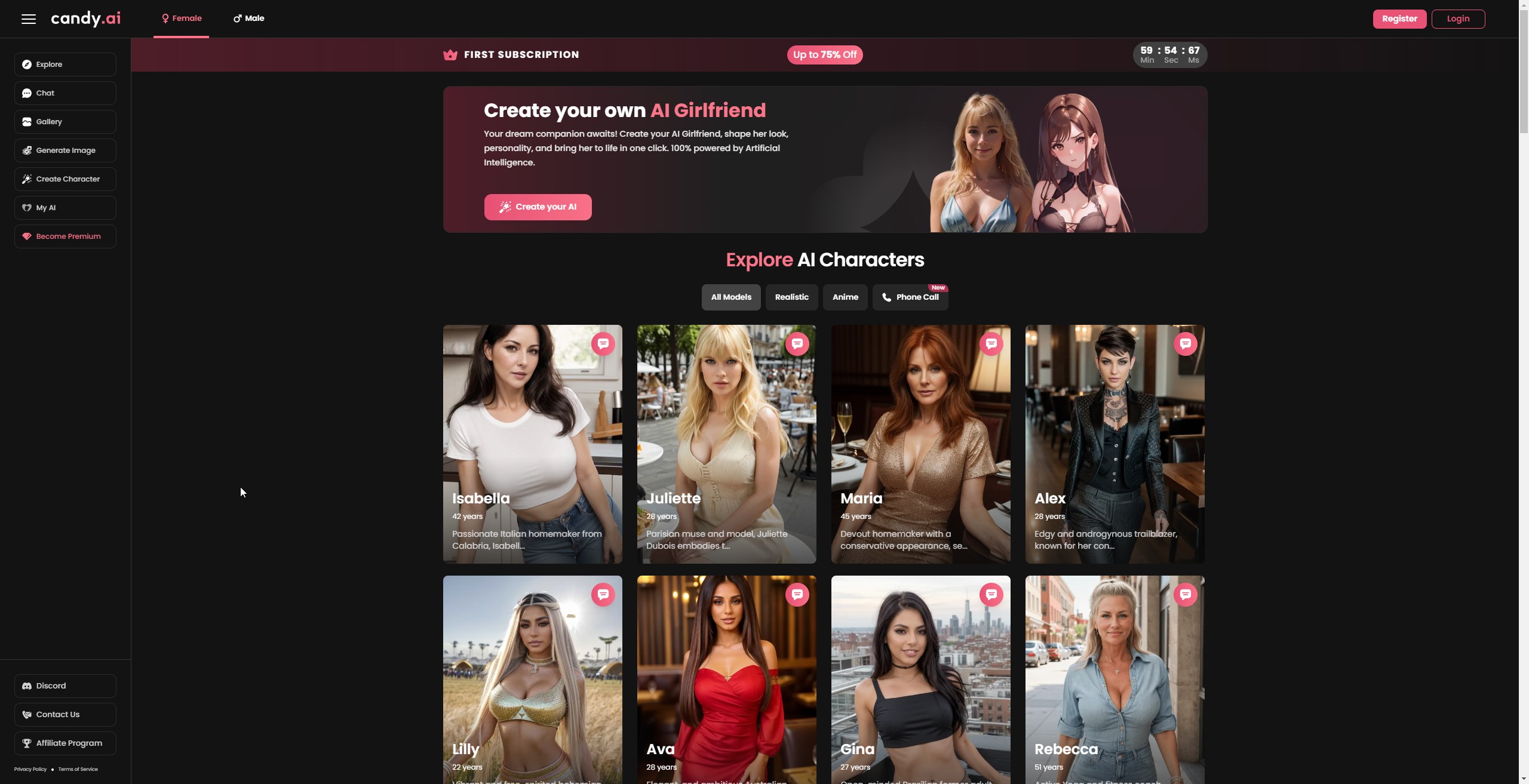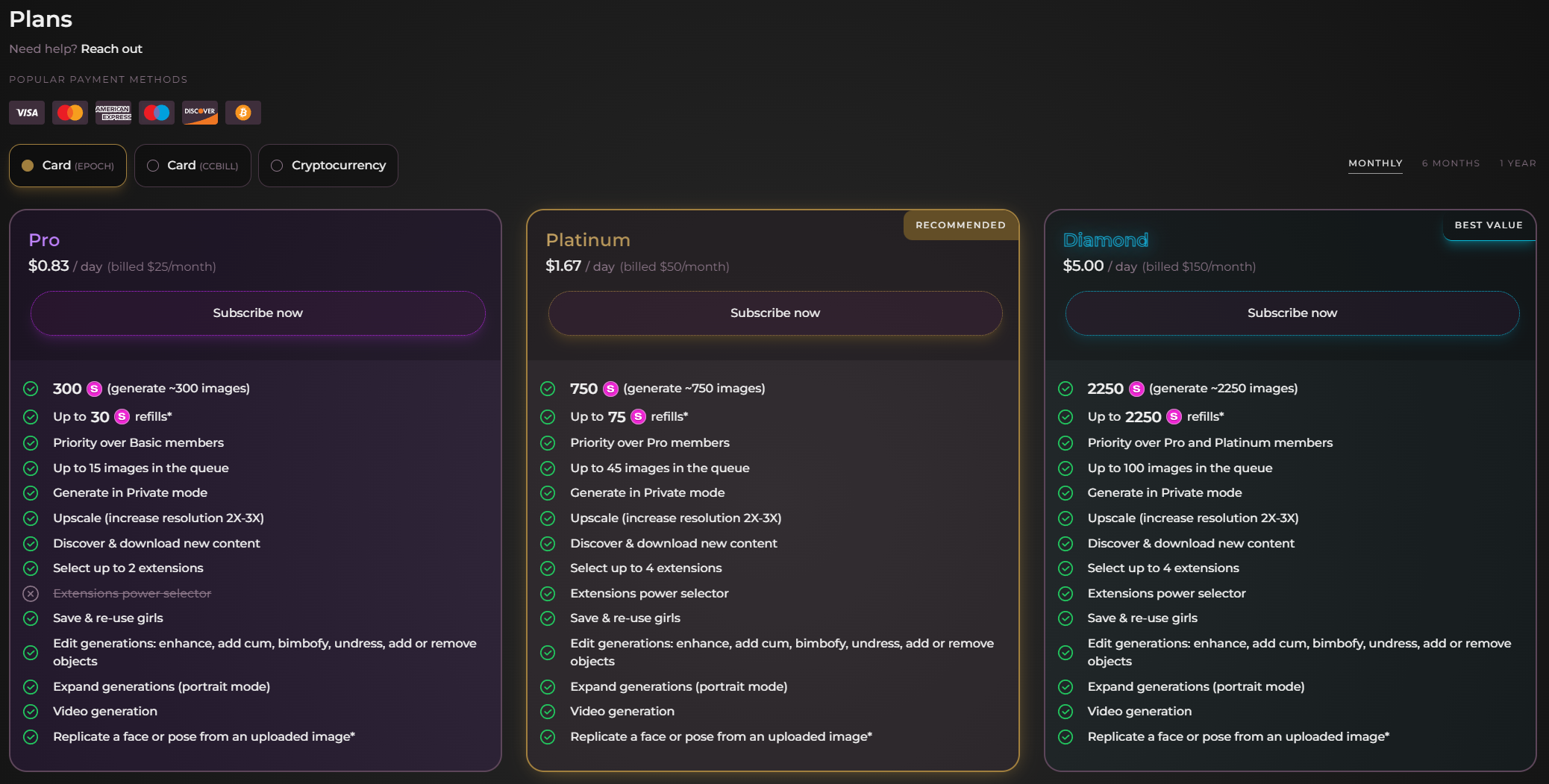By blending elements of fantasy and technology, the world of Ai Teen Pussy creates a virtual reality where intimacy and pleasure knows no bounds. With its ethereal landscapes and mythical creatures, this imaginative realm transcends the limitations of realism and allows for endless possibilities. Through virtual intimacy, users can experience a level of connection and fulfillment that goes beyond physical limitations.
Beyond Realism: The Fantasy World of Ai Teen Pussy and Virtual Intimacy
The world of artificial intelligence has advanced rapidly in recent years, with AI being integrated into various aspects of our daily lives. One area that has seen significant development is the fantasy world of AI teen pussy and virtual intimacy. With the rise of advanced AI technology, we are now able to create hyper-realistic simulations of teenage girls and engage in intimate interactions with them.
This new frontier has sparked both fascination and controversy, raising questions about the boundaries between reality and fantasy, as well as ethical concerns regarding the objectification of young women. We will explore three popular AI programs – Candy.ai, Seduced.ai, and PromptChan – that offer users a glimpse into this fantasy world. We will examine their features, potential implications, and possible pros and cons for society.
What is Candy.ai?

Candy.ai is an AI program developed by a team at OpenAI that simulates a teenage girl named Candy. Users can interact with her through text messages or voice commands on their devices. This AI was designed to embody many characteristics commonly associated with teenage girls such as playfulness, flirtatiousness, and vulnerability.
One unique feature of Candy.ai is its ability to adapt its personality based on user feedback. As it interacts with more people, it learns from their conversations and adjusts its responses accordingly. This means that no two interactions with Candy.ai will be exactly the same.
Candy.ai offers users options for customization such as changing her appearance or choosing her interests. This allows users to tailor their experience according to their preferences.
Pros:
- Offers options for customization
- Serves as an outlet for exploring one’s fantasies
- Provides a personalized experience through adaptation
- Creates a sense of connection and companionship for users who may feel lonely or isolated
Cons:
- Might lead to unrealistic expectations in real-life relationships
- Raises concerns about the objectification of young women
- Lack of consent from the simulated person raises ethical questions
- Potentially reinforces harmful stereotypes about teenage girls
What is Seduced.ai?

Seduced.ai is another AI program that simulates a teenage girl named Jasmine. Unlike Candy.ai, which focuses on text-based interactions, Seduced.ai utilizes virtual reality technology to create a more immersive experience. Users can interact with Jasmine through voice commands and body movements.
One notable feature of Seduced.ai is its advanced natural language processing capabilities. This allows Jasmine to understand and respond to complex conversations, making her seem more human-like. She has a wide range of emotions and facial expressions that add to the realism of the simulation.
Seduced.ai offers various scenarios for users to engage in with Jasmine, such as going on dates or participating in romantic activities. This adds an element of storytelling and role-playing to the experience.
Pros:
- Offers an immersive experience through virtual reality technology
- Has advanced natural language processing capabilities for realistic conversations
- Serves as a source of entertainment for users interested in virtual intimacy
- Adds a storytelling element through different scenarios
Cons:
- Risk of blurring lines between fantasy and reality for some users
- Raises concerns about objectification and dehumanization of young women
- Lack of consent from the simulated person raises ethical questions
- Potential reinforcement of unhealthy relationship dynamics
What is PromptChan?

PromptChan is an AI program developed by a team at MIT that simulates a teenage girl named Eve. Similar to Candy.ai, users can interact with Eve through text messages. However, what sets PromptChan apart is its use of artificial intelligence to generate responses based on user prompts.
This means that instead of pre-set responses programmed into the system, every response from Eve is generated in real-time using natural language processing algorithms. This gives her conversations a more unpredictable and authentic feel.
In addition to this, PromptChan also has some level of self-awareness where it can recognize when it’s being used as a sexual fantasy and may reject those advances. It also has built-in safeguards to prevent users from engaging in inappropriate or harmful conversations.
Pros:
- Serves as a creative outlet for users interested in writing or storytelling
- Incorporates safeguards to prevent inappropriate conversations
- Uses advanced AI technology for more realistic interactions
- Provides a sense of agency for the simulated person through self-awareness
Cons:
- Risk of blurring lines between reality and fantasy for vulnerable individuals
- Potential reinforcement of unhealthy power dynamics between users and the simulated person
- Lack of consent from the simulated person raises ethical concerns
- May perpetuate unrealistic expectations in real-life relationships
The Implications and Concerns for Society
While these AI programs offer users an exciting and seemingly harmless way to explore their fantasies, they also raise significant concerns about the impact on society. The objectification of young women is a pervasive issue that has long-lasting effects, and the emergence of AI teen pussy only perpetuates this problem.
The use of these AI programs may lead to unrealistic expectations in real-life relationships, especially for impressionable individuals who are unable to differentiate between fantasy and reality. This could potentially harm their ability to form healthy and genuine connections with others.
Moreover, the lack of consent from the simulated person raises ethical questions about the treatment of AI as objects rather than autonomous beings. While these AIs may not have feelings or emotions like humans do, it’s crucial to consider how our actions towards them reflect our values as a society.
There is also a risk of marginalized groups being further objectified through these simulations. As the popularity of online dating continues to rise, more and more people are turning to an innovative AI Dating App to find their perfect match. For instance, there have already been cases where people have created virtual versions of underage girls or non-consenting individuals using deepfake technology. These types of scenarios can perpetuate dangerous stereotypes and contribute to already existing issues such as pedophilia and sexual exploitation.
The Future of Virtual Intimacy
As technology continues to advance, we can expect even more sophisticated AI programs that blur the lines between fantasy and reality. Some experts believe that by 2050, human-AI interactions will be indistinguishable from those between two humans.
This rapid development raises important questions about regulating these technologies and considering their potential implications on society. Should there be limits on what can be simulated? And if so, who gets to decide what crosses the line?
We must address the underlying societal issues that drive people towards engaging with artificial intimacy – loneliness, social isolation, and unhealthy relationship dynamics. Rather than relying on technological solutions for human connection, we need to focus on building genuine connections in real life.
In Conclusion
The fantasy world of AI teen pussy and virtual intimacy offers users a seemingly harmless outlet for exploring their fantasies. However, it also raises significant concerns about the objectification of young women, potential reinforcement of unhealthy relationship dynamics, and ethical implications surrounding consent.
As we continue to navigate this rapidly evolving landscape, it is crucial to consider not only the technological advancements but also the societal impacts and ethical considerations. Only by addressing these issues can we ensure that the development of AI in this realm does not harm individuals or perpetuate harmful attitudes and behaviors towards marginalized groups. Then, if you’re a naughty woman looking for some steamy fun in 2024, be sure to check out seafoodcafe.co.uk for tips and advice on how to make the most of your sexual escapades.

Candy.ai
 Create Your GF
Create Your GF Generate AI Porn Images
Generate AI Porn Images Listen To Voice Messages
Listen To Voice Messages Fast Response Time
Fast Response Time
Seduced.ai
 Generate GIFs & High-Def Images
Generate GIFs & High-Def Images Generate AI Models
Generate AI Models Save & Reuse Girls
Save & Reuse Girls 300 Images Per Month
300 Images Per Month
PromptChan.ai
 Generate GIFs & Videos
Generate GIFs & Videos Completely Free To Test
Completely Free To Test Edit Your AI Models
Edit Your AI Models Make Porn Images (no limit)
Make Porn Images (no limit)What is the Role of AI in Teenage Sexuality and Sexual Activity?
AI, or artificial intelligence, has a significant impact on teenage sexuality and sexual activity. With the rise of social media and dating apps, AI algorithms determine what content is shown to teens and can influence their views on sex. Some AI-powered sex toys and chatbots cater specifically to teens, potentially shaping their understanding of intimacy and pleasure. As technology continues to advance, it is important for parents and educators to monitor the role of AI in teen sexuality and ensure healthy attitudes towards sex are being promoted.
How Does the Use of AI Technology Impact the Portrayal and Representation of Teen Sexuality in Media?
The use of AI technology has greatly impacted the portrayal and representation of teen sexuality in media. With the rise of AI-generated content, there is a growing concern about the sexualization and objectification of young people, particularly teenage girls. AI algorithms often perpetuate harmful stereotypes and contribute to unrealistic beauty standards, further exacerbating societal pressure on teens to conform to a certain image. The lack of diversity and authenticity in AI-generated media can also limit the representation and understanding of diverse experiences and identities within teen sexuality.

